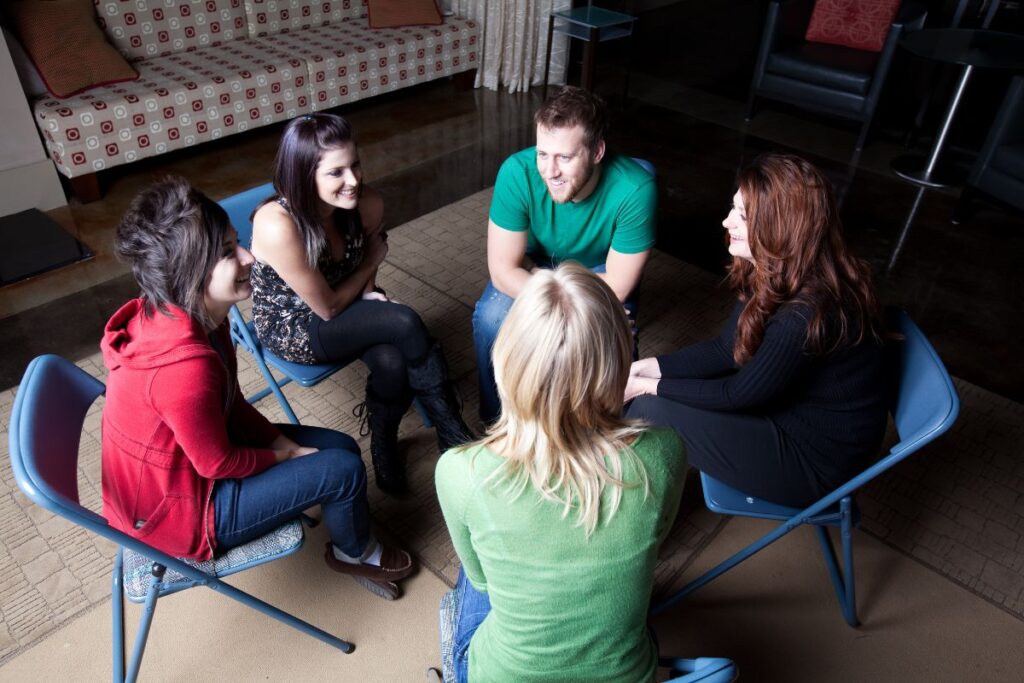👇Get Instant Employee Appreciation Tips 👇
Here’s what you’ll get inside:
- Fresh insights on why appreciation drives retention and wellbeing
- Ready-to-use ideas for celebrating employees meaningfully (not just with perks)
- Practical guides to build recognition into your daily culture
- Unique, human-first strategies that go beyond generic HR advice
7 Actionable Ways To Celebrate Mental Health Awareness Week 2025 at Work
Mental Health Awareness Week 2025 takes place from Monday 12th May to Sunday 18th May, and this year’s theme – “Community and Connection” – couldn’t come at a more critical moment.
New data from Gallup’s 2025 State of the Global Workplace report paints a stark picture:
UK workers are among the saddest and most disengaged in Europe.
26% of UK employees report feeling sadness daily – the second highest figure across the continent – and only 10% say they feel engaged at work. Other countries aren’t far behind, with Ireland, Portugal, and Italy all reporting high sadness levels and dangerously low engagement rates.
Stress, burnout, and disconnection aren’t isolated issues anymore – they’re systemic.
And while awareness campaigns are important, they’re no longer enough on their own. If we want real change, we need real action.
This year’s Mental Health Awareness Week theme reminds us that real wellbeing is built through relationships, through community, and through daily moments of genuine connection.
So here are 7 practical, human-first ways to make Mental Health Awareness Week 2025 meaningful – and to start building a workplace where people feel seen, supported, and connected all year long.

1. Open Real Conversations About Mental Health
It’s easy to send out a company-wide email about Mental Health Awareness Week and feel like you’ve ticked the box. But real support goes far beyond words on a screen.
The workplaces that build lasting cultures of care are the ones that open real, two-way conversations around mental health. Not just one week a year, but as part of how they operate every day.
Creating space for honest dialogue needs to be intentional. You could start by hosting informal wellbeing check-ins, where employees have the option to share how they’re feeling in a safe, no-pressure environment. These aren’t performance meetings or wellness “audits” – they’re simple human conversations that show people they’re more than just a job title.
For teams that prefer structured discussions, consider running Mental Health Awareness Week talks or workshops. Focus on themes like stress management, coping strategies, or mental health myths. You don’t need to have all the answers – in fact, sometimes the most powerful thing you can do is simply listen.
And remember, not everyone is ready to open up face-to-face. Offering anonymous surveys or feedback forms can provide another route for people to share their experiences and needs confidentially. What matters most is that your people know: This is a workplace where you are seen, supported, and safe to be human.
Mental health conversations are about creating the conditions where people can thrive. And true connection – the kind that drives engagement, loyalty, and wellbeing – always starts with listening.

2. Protect Time for Recovery
One of the most overlooked parts of supporting mental health at work is also one of the simplest: giving people real permission to rest.
It’s not enough to tell employees to “look after themselves” if the culture quietly rewards exhaustion, presenteeism, and working through lunch breaks. If the environment doesn’t change, neither will the behaviour.
That’s why protecting time for recovery has to be intentional and visible. Small actions send big signals. Could you introduce a no-meeting policy over lunchtime, or even designate one afternoon a week as a meeting-free zone?
Some companies are experimenting with half-day Fridays or offering “wellbeing hours” where staff can step away from screens without guilt. These don’t have to be expensive or complex to work – they just need to be consistent. When employees know they have protected time to pause, recharge, or simply breathe, it fuels better focus, creativity, and resilience too.
Wellbeing is built in the quiet moments when people are trusted to take care of themselves, and when leaders show that rest isn’t a reward for burning out. It’s part of how we work better, together.

3. Recognise Moments That Matter
In busy workplaces, it’s easy to focus only on the next deadline, the next project, the next goal.
But if you want to support mental health – and build a culture where people feel connected and motivated – you can’t overlook the power of recognition.
Recognising milestones, anniversaries, and small wins is a core driver of wellbeing, engagement, and loyalty.
Celebrating the everyday moments – not just the major achievements – tells people that who they are and what they contribute matters. It builds emotional connection, strengthens team bonds, and helps people feel seen beyond their output. Recognition doesn’t have to be grand or expensive to be meaningful. Sometimes it’s a personal thank-you card, a thoughtful message on an anniversary, a snack box that shows you remembered.
Other times, it might be a team shout-out, a wellbeing reward, or simply pausing to celebrate small victories together. The key is consistency and sincerity. When recognition is woven naturally into the culture, rather than reserved for quarterly awards, it transforms the workplace into a community where people feel valued, not invisible. When people feel valued, they show up differently. Not out of obligation, but out of genuine connection and care.

4. Make Mental Health Visible, Not Taboo
One of the biggest barriers to better mental health at work isn’t a lack of resources – it’s the lingering stigma around talking about it. If leadership stays silent, so will everyone else.
When senior leaders and managers speak openly about mental health – whether it’s sharing their own experiences or simply acknowledging the realities of stress, anxiety, and burnout – it sends a powerful message: It’s safe to talk about these things here. This visibility breaks the unspoken rule that mental health struggles are something to hide, or only address behind closed doors. It shifts the culture from “we don’t talk about that” to “we support each other through it.”
You don’t have to overshare or force vulnerability. Authenticity is enough. Acknowledging that everyone faces challenges – and showing that asking for help is seen as a strength, not a weakness – can change the entire tone of a workplace.
Culture is set at the top. If leaders model openness, empathy, and support, employees will feel more empowered to do the same. And that’s when real trust starts to grow – the kind of trust that fuels better wellbeing, deeper engagement, and stronger teams.

5. Create Opportunities for Reflection
When we talk about mental health at work, the focus often falls on big initiatives – therapy benefits, wellness platforms, mental health training. But sometimes, what people need most is simply a moment to pause.
Mindfulness is about creating space in the workday – even just a few minutes – for employees to reflect, reset, and reconnect with themselves. Simple tools can make a powerful difference. A daily reflection journal, a mindfulness prompt shared at the start of a team meeting, or a guided breathing session during a busy week – these small, intentional practices encourage employees to slow down in a world that constantly asks them to speed up.
By offering opportunities for reflection, you’re giving people permission to be present. To step back from the noise. To check in with their own mental and emotional health before burnout takes hold.
Moments of reflection build resilience. They help people process challenges, celebrate wins, and stay grounded – both at work and beyond it. And when reflection becomes part of the workplace rhythm, it sends a deeper message: Your wellbeing matters here – not just your output.

6. Give a Gift That Supports Mental Health
Not every action needs to be a grand initiative to have a real impact. Sometimes, it’s the small, thoughtful gestures that create the biggest emotional touchpoints.
A well-chosen gift can do more than surprise and delight – it can serve as a tangible reminder that someone is valued, supported, and remembered. This Mental Health Awareness Week, we’ve designed a special limited-edition WellBox gift to make that impact simple and meaningful.
Our Mental Health Awareness Week 2025 Gift has been curated with care to encourage reflection, wellbeing, and connection.
It includes essentials like:
- A daily mindfulness journal for capturing thoughts and moments of gratitude
- A wellness vitamin sachet to support physical and mental energy
- A selection of sweet treats to bring a little joy to the day
- A £1 donation to Mind, a leading mental health charity, on behalf of you or your company
Each gift is delivered in a premium, sustainable box, and can be personalised with a printed message – adding a truly personal touch that recipients remember.
It’s a small but powerful way to say, “You matter here.” And in a world where disconnection is becoming the norm, gestures like these mean more than ever.

7. Keep the Momentum Going Beyond Awareness Week
Mental Health Awareness Week is a powerful catalyst for change – but it shouldn’t be the finish line.
If we want to build workplaces where people genuinely feel supported, connected, and well, we need to think long-term. One-off gestures are important. They show intent. But sustainable impact comes from embedding those small actions into the culture, every week of the year.
That might mean setting regular wellbeing check-ins, continuing to protect time for recovery, recognising milestones consistently, and keeping open conversations about mental health visible and normalised – not just during designated “awareness weeks.”
It also means staying curious.
Listening to what your people need.
Evolving your support as new challenges emerge.
When mental health and human connection are treated as everyday priorities – not just seasonal campaigns – it transforms the way people show up, engage, and thrive within your organisation.
Mental Health Awareness Week 2025 is the start. The real opportunity is what happens after.
Mental Health Awareness Week Is Just the Beginning
Mental Health Awareness Week 2025 is a chance to do more than raise awareness – it’s a moment to turn good intentions into meaningful action. It’s an opportunity to lay the foundations for a healthier, more human workplace – one where mental wellbeing is woven into the everyday experience of work.
Because when people feel supported, valued, and connected, everything else follows: engagement, loyalty, creativity – and real, lasting success.
Small actions build big cultures. Whether it’s opening real conversations, protecting time for recovery, recognising the moments that matter, or offering a thoughtful gift that says “you belong here” – every gesture adds up.
This Mental Health Awareness Week, let’s commit to more than just talking about mental health.
Let’s create workplaces where people can truly thrive – not just for a week, but for the long run.

